economics
Majority of participants who don’t live with Mom and Dad are losing money while they work in the anime industry.
Warmhearted hospitality plus unforgiving customers equals the world’s highest service standards.
Going to work for an anime company continues to be a terrible plan if your goal is to get rich.
A study found that workers in Japan distrust their employers significantly more than workers in the US, UK, Canada and Australia do.
Our mothers always told us that it’s not polite to talk about money. And while we usually listen to what our mother’s tell us, this one time we’re going to ignore their advice. Sorry, mom!
But, really, it’s not a big deal, because we’re not talking about our money. Instead, we’re talking about Japanese people’s money–specifically, how much they have saved up on average. And the number might surprise you.
At a recent budget meeting in the Japanese Diet, a member asked Prime Minister Abe to explain his growth strategy. As you probably know, the prime minister has been focused on improving the Japanese economy, though he’s not having the greatest of luck. As Abenomics–the cheeky name given to Abe’s economic policies–fluctuates in and out of favor, many are wondering if it’s working at all. We’re not sure the Prime Minister’s response is going to assuage anyone’s fears…
For most of its history, Japan was separated from the rest of the world by the surrounding seas and an isolationist policy strictly enforced by its feudal period government. These centuries of isolation led to a unique culture, and it’s long been a favorite challenge for researchers and commentators to try to pin down just what defines the Japanese character.
Chinese news portal BW Chinese recently published a list of characteristics of the Japanese psyche, as originally put forth by Australian Gregory Clark, whose educational and professional career dealing with Japanese sociology, education, and economics has spanned more than five decades.
Originally a particularly polite way of saying “you,” the Japanese word otaku evolved into a label for anyone with an obsessive, passionate devotion to their hobby. While most commonly associated with anime fans, the term is also applied to hardcore video gamers, technology buffs, and even auto enthusiasts.
Much like “geek,” otaku was initially a derogatory term, but has lost a lot of its sting and become largely co-opted in recent years. Still, it’s important to not let yourself get too wrapped up in your hobbies. Conveniently, there’s now a mathematical formula to determine if your otaku-ness has become too much for your own good.
Next to the USA, the second largest economy in the world used to be Japan. But after the bubble collapsed, the Japanese economy has been stagnant and, in 2012, fell to third place. Second place, as you probably know, was taken by China, whose economy is expanding at an unprecedented rate.
China’s rise is an undeniable fact. But is it true that Japan is on the wane? Mr. Chong Wong, a Chinese expert on diplomatic issues, took up the question. Writing on his blog (Chinese only), Mr. Wong offered up evidence that Japan wasn’t in decline but was actually the best in the world in some ways. We’ve listed the major ones below.
Changes are expected to be made to the Vietnamese constitution this October during sessions of the country’s National Assembly. The current constitution was ratified in 1992 as part of the doimoi political movement that relaxed many of the government’s economic controls, and was a major departure from its previous incarnation.
Although minor revisions were made to the constitution in 2001, far more extensive alterations are expected in the next round. Among the many points to be discussed is the possibility of altering the country’s official name.
Despite Japan’s famously strong work ethic, even offices here have some employees who coast through the day, oblivious to their more industrious coworkers who exasperatedly wonder how their paychecks remain so similar when their levels of dedication are anything but.
Economist Taiichi Kogure touches on some of these points in his latest work, The Mindset of People Who Will Always Have Low Salaries, which hit bookshelves in Japan last month. Inspired by the book, Livedoor News posted the following editorial analogy based on Kogure’s concepts, titled “Your Salary Isn’t Determined by Your Efforts or Value.” Read More
In the face of our global economy’s seemingly never-ending nosedive, Japan has come up with a hip, new way to stimulate growth in its local communities: by starting up a band!
Machikado Keiki☆JAPAN, a group name that roughly translates to “Street Corner Conditions JAPAN,” is the latest and greatest four-girl idol group to hit the media. I know it sounds a bit like a band full of hookers, but just wait until you hear their pitch! Basically, the better the nation’s stocks are doing, the shorter their skirts get! Clearly, the idea of having enough money for food and rent is not enough of an incentive to get some economic stimulus going; what the country really needs is more half-naked women! Read More
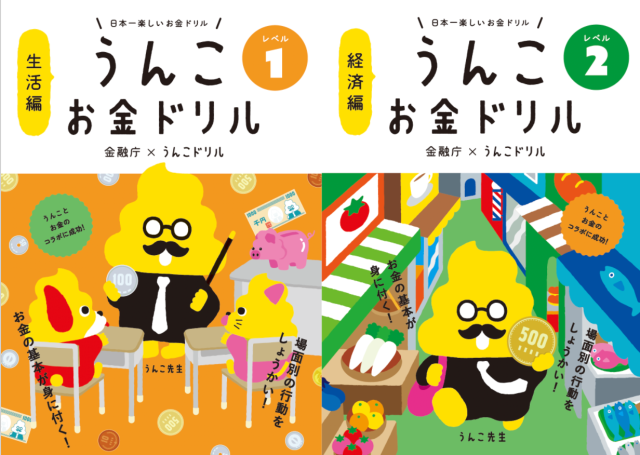
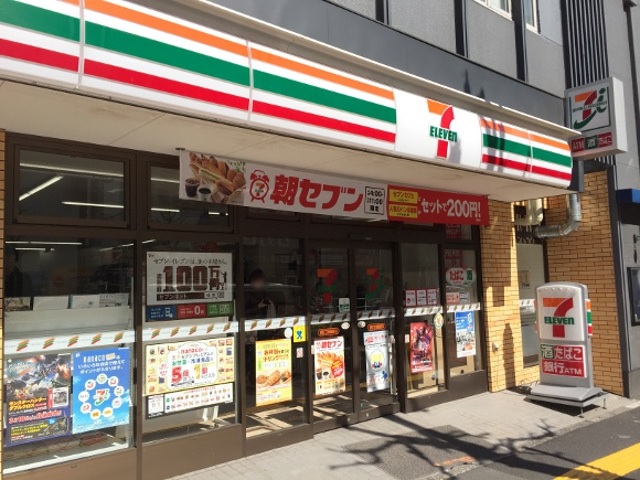
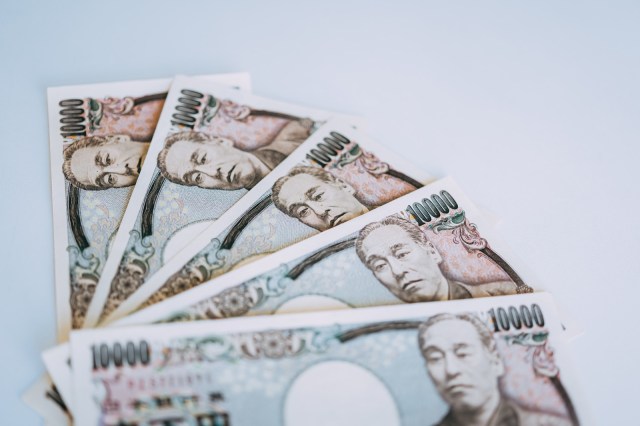

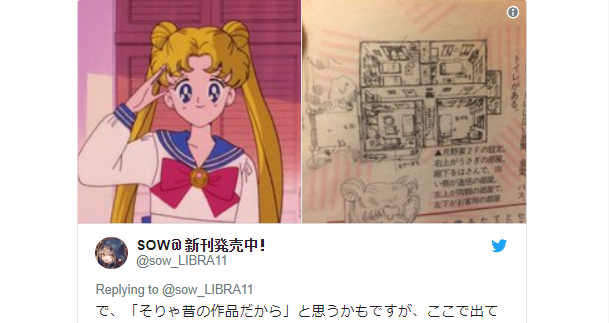
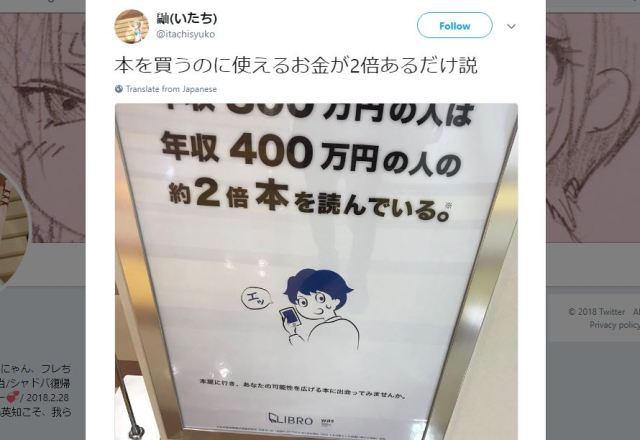

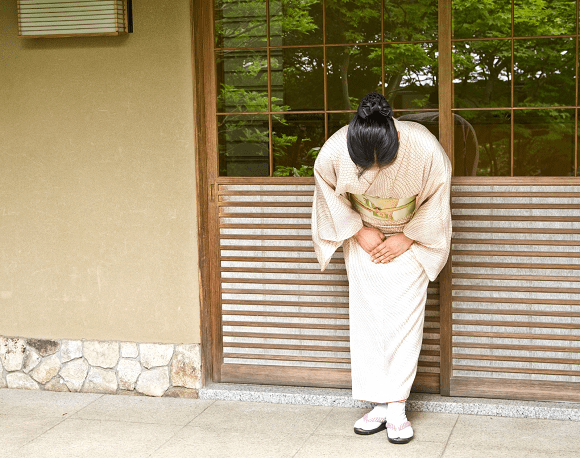


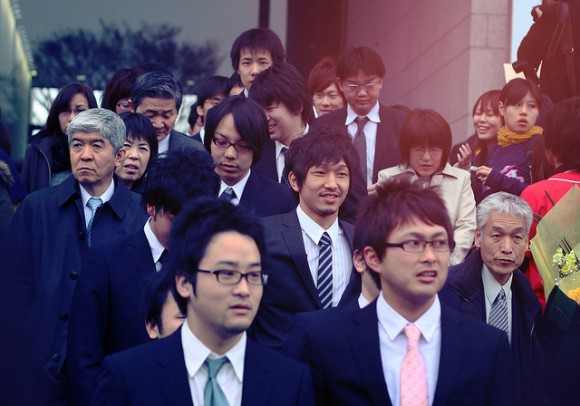
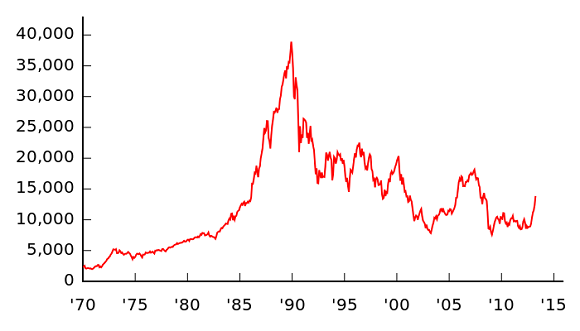


 The fish in rural Fukui that rivals Japan’s most auspicious sea bream
The fish in rural Fukui that rivals Japan’s most auspicious sea bream Japanese restaurant chain serves Dragon Ball donuts and Senzu Beans this spring
Japanese restaurant chain serves Dragon Ball donuts and Senzu Beans this spring Starbucks Japan releases first-ever Hinamatsuri Girls’ Day Frappuccino
Starbucks Japan releases first-ever Hinamatsuri Girls’ Day Frappuccino Japan has only one airport named after a samurai, so let’s check out Kochi Ryoma【Photos】
Japan has only one airport named after a samurai, so let’s check out Kochi Ryoma【Photos】 Which convenience store onigiri rice balls are the most popular? Survey reveals surprising results
Which convenience store onigiri rice balls are the most popular? Survey reveals surprising results Drift ice in Japan is a disappearing winter miracle you need to see now
Drift ice in Japan is a disappearing winter miracle you need to see now Japan Extreme Budget Travel! A trip from Tokyo to Izumo for just 30,000 yen [Part 2]
Japan Extreme Budget Travel! A trip from Tokyo to Izumo for just 30,000 yen [Part 2] Survey finds that one in five high schoolers don’t know who music legend Masaharu Fukuyama is
Survey finds that one in five high schoolers don’t know who music legend Masaharu Fukuyama is Japan Extreme Budget Travel! A trip from Tokyo to Izumo for just 30,000 yen [Part 1]
Japan Extreme Budget Travel! A trip from Tokyo to Izumo for just 30,000 yen [Part 1] Here comes Japan’s newest fruit dessert sandwich: 7-Eleven’s purple Blueberry Sandwich!
Here comes Japan’s newest fruit dessert sandwich: 7-Eleven’s purple Blueberry Sandwich! Highest Starbucks in Japan set to open this spring in the Tokyo sky
Highest Starbucks in Japan set to open this spring in the Tokyo sky The 10 most annoying things foreign tourists do on Japanese trains, according to locals
The 10 most annoying things foreign tourists do on Japanese trains, according to locals Tokyo Skytree turns pink for the cherry blossom season
Tokyo Skytree turns pink for the cherry blossom season Yakuzen ramen restaurant in Tokyo is very different to a yakuza ramen restaurant
Yakuzen ramen restaurant in Tokyo is very different to a yakuza ramen restaurant Shibuya Station’s Hachiko Gate and Yamanote Line stairway locations change next month
Shibuya Station’s Hachiko Gate and Yamanote Line stairway locations change next month Starbucks Japan releases new sakura goods and drinkware for cherry blossom season 2026
Starbucks Japan releases new sakura goods and drinkware for cherry blossom season 2026 Starbucks Japan adds new sakura Frappuccino and cherry blossom drinks to the menu
Starbucks Japan adds new sakura Frappuccino and cherry blossom drinks to the menu Japan’s new “Cunte” contact lenses aren’t pronounced like you’re probably thinking they are
Japan’s new “Cunte” contact lenses aren’t pronounced like you’re probably thinking they are Japan’s newest Shinkansen has no seats…or passengers [Video]
Japan’s newest Shinkansen has no seats…or passengers [Video] Foreigners accounting for over 80 percent of off-course skiers needing rescue in Japan’s Hokkaido
Foreigners accounting for over 80 percent of off-course skiers needing rescue in Japan’s Hokkaido Super-salty pizza sends six kids to the hospital in Japan, linguistics blamed
Super-salty pizza sends six kids to the hospital in Japan, linguistics blamed Starbucks Japan unveils new sakura Frappuccino for cherry blossom season 2026
Starbucks Japan unveils new sakura Frappuccino for cherry blossom season 2026 Foreign tourists in Japan will get free Shinkansen tickets to promote regional tourism
Foreign tourists in Japan will get free Shinkansen tickets to promote regional tourism Take a trip to Japan’s Dododo Land, the most irritating place on Earth
Take a trip to Japan’s Dododo Land, the most irritating place on Earth Naruto and Converse team up for new line of shinobi sneakers[Photos]
Naruto and Converse team up for new line of shinobi sneakers[Photos] Is China’s don’t-go-to-Japan warning affecting the lines at a popular Tokyo gyukatsu restaurant?
Is China’s don’t-go-to-Japan warning affecting the lines at a popular Tokyo gyukatsu restaurant? Survey asks foreign tourists what bothered them in Japan, more than half gave same answer
Survey asks foreign tourists what bothered them in Japan, more than half gave same answer Japan’s human washing machines will go on sale to general public, demos to be held in Tokyo
Japan’s human washing machines will go on sale to general public, demos to be held in Tokyo Starbucks Japan releases new drinkware and goods for Valentine’s Day
Starbucks Japan releases new drinkware and goods for Valentine’s Day We deeply regret going into this tunnel on our walk in the mountains of Japan
We deeply regret going into this tunnel on our walk in the mountains of Japan Studio Ghibli releases Kodama forest spirits from Princess Mononoke to light up your home
Studio Ghibli releases Kodama forest spirits from Princess Mononoke to light up your home Major Japanese hotel chain says reservations via overseas booking sites may not be valid
Major Japanese hotel chain says reservations via overseas booking sites may not be valid Put sesame oil in your coffee? Japanese maker says it’s the best way to start your day【Taste test】
Put sesame oil in your coffee? Japanese maker says it’s the best way to start your day【Taste test】 No more using real katana for tourism activities, Japan’s National Police Agency says
No more using real katana for tourism activities, Japan’s National Police Agency says Drift ice in Japan is a disappearing winter miracle you need to see now
Drift ice in Japan is a disappearing winter miracle you need to see now Japan Extreme Budget Travel! A trip from Tokyo to Izumo for just 30,000 yen [Part 2]
Japan Extreme Budget Travel! A trip from Tokyo to Izumo for just 30,000 yen [Part 2] Survey finds that one in five high schoolers don’t know who music legend Masaharu Fukuyama is
Survey finds that one in five high schoolers don’t know who music legend Masaharu Fukuyama is Japan Extreme Budget Travel! A trip from Tokyo to Izumo for just 30,000 yen [Part 1]
Japan Extreme Budget Travel! A trip from Tokyo to Izumo for just 30,000 yen [Part 1] Here comes Japan’s newest fruit dessert sandwich: 7-Eleven’s purple Blueberry Sandwich!
Here comes Japan’s newest fruit dessert sandwich: 7-Eleven’s purple Blueberry Sandwich! Top 100 manga of all time chosen by survey of 150,000 Japanese people
Top 100 manga of all time chosen by survey of 150,000 Japanese people Tokyo Gas commercial gets taken off the air for being too cruelly realistic
Tokyo Gas commercial gets taken off the air for being too cruelly realistic Maid street in Akihabara gets a new vending machine that’s sweeter than usual
Maid street in Akihabara gets a new vending machine that’s sweeter than usual Mos Burger’s new “Focaccia Sand” surprises us with its long sausage
Mos Burger’s new “Focaccia Sand” surprises us with its long sausage Japanese drugstore sells onigiri at pre-stupid era prices, but how do they compare to 7-Eleven?
Japanese drugstore sells onigiri at pre-stupid era prices, but how do they compare to 7-Eleven? Ghibli’s Kiki’s Delivery Service returns to theaters with first-ever IMAX screenings and remaster
Ghibli’s Kiki’s Delivery Service returns to theaters with first-ever IMAX screenings and remaster Fear Factor meets Next Top Model in China’s modeling competition extravaganza
Fear Factor meets Next Top Model in China’s modeling competition extravaganza McDonald’s Japan adds first-ever shrimp rice burger to menu in gohan sandwich expansion
McDonald’s Japan adds first-ever shrimp rice burger to menu in gohan sandwich expansion